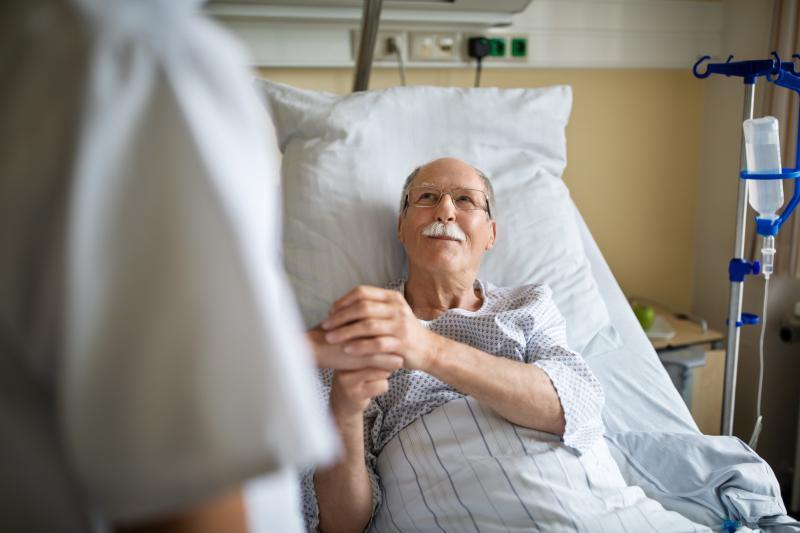By Tim Smit
Coronavirus is shaking up our daily routines, but it also is helping us rediscover the important things in life. We now have more appreciation for the people who keep society running during difficult times – nurses, delivery drivers, and information technology staff. It’s also clear that the little things in life should be cherished, such as spending time at home with family, reading with children or enjoying movie night on the couch.
The European Investment Bank Group has supported many of the aspects of life that you are appreciating more now. We have provided hospitals with state-of-the-art medical facilities, expanded broadband internet connections that allow massive amounts of teleworking, and ensured that you have podcasts and audiobooks to get you through the day. We also supported companies that are changing the focus of their businesses to fight Covid-19.
Coronavirus infrastructure investment at the centre of the crisis
Hospitals are at the centre of the crisis. Access to the best possible medical care saves lives. The EIB has contributed heavily to the healthcare sector across Europe for many years, financing hospitals and care facilities in almost every European Union country. We will continue to do this in the future. The EIB Group is making €5 billion available for research and innovation to combat the spread of the coronavirus and help find a vaccine.

The EIB Group has helped improve health care and hospitals in almost every country in the European Union.
With schools and universities closed, online learning is suddenly the flavour of the day. The European Investment Bank supported about 150 primary and secondary schools in Croatia, providing a wide range of digital infrastructure and equipment. Twenty of these schools received specific support in hardware, software and services to connect the teaching and administrative processes. We’re not encouraging anyone to stay away from school once classes get going again, but now that you have to stay home as a health preservation measure, you can still get your education.
Food delivery for people stuck at home
Supermarkets and other essential shops remain open, but not everyone can get out easily. That’s where delivery services come in, like the one set up by Grosbusch in Luxembourg. The EIB Group approved a so-called intermediary loan to BGL Bank. These types of big loans allow banks to give loans to many businesses.
Grosbusch, a family-run fruit and vegetable supplier, took out one of these loans to increase its storage capacity and provide more services. One of these new services is the delivery of fresh fruit and vegetables to those who need it across Luxembourg.
Many people are getting through the lockdown by listening to audiobooks and podcasts. The country with one of the highest usage rates for podcasts is Sweden. In 2019, the EIB signed a €25 million deal with the Swedish podcast company Acast, which also hosts the EIB’s podcasts.
Another Swedish company supported by the bank is Bonnier, the large media group. The company received a €250 million loan in 2017. One of the results of this financing is “BookBeat,” a subscription e-book service that helps people get through their days more smoothly in Sweden and Germany.
Trustworthy teleworking with coronavirus infrastructure investment
As soon as the lockdowns started, many people working in IT broke a sweat wondering how they would manage the huge tasks ahead. Teleworking puts big demands on the broadband networks that keep people connected to the internet.
The EIB has invested a lot to bring broadband internet service to rural areas in countries such as France, for example. But we also helped other countries upgrade to the latest broadband services, bringing fibre-optic services into many homes. The EIB helped Magyar Telekom in Hungary, Telekom Slovenije and the Warminsko-Mazurskie area of Poland upgrade their fibre networks, and we also updated mobile broadband in Bulgaria. We helped build local fibre networks in dense and sparsely populated areas of Malta and Cyprus. These projects now ensure that teleworking works better across Europe.
There also are many companies going the extra mile during this crisis. For example, QEV Technologies, a Spanish company that specialises in drive systems and other parts for electric vehicles, stopped its normal work to help healthcare institutions in Catalonia respond to the coronavirus pandemic.
QEV, which signed a financing deal with the EIB last year, has started importing respirators and making parts for respirators using its 3D technology. The company is also making protective masks and visors for healthcare workers.